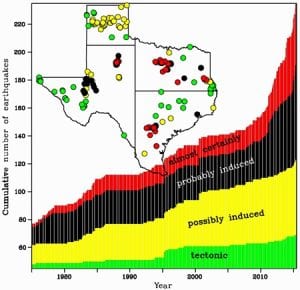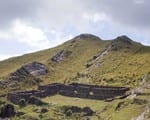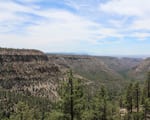A new study Texas seismology researchers finds that humans have been causing earthquakes not just in North Texas but throughout the state for nearly 100 years.
Science journalist Anna Kuchment with The Dallas Morning News covered the research of SMU seismologists on the historical record of North Texas earthquakes and their causes.
The SMU seismology team on May 18 published online new evidence of human involvement in earthquakes since the 1920s in the journal Seismological Research Letters. The study found that human-caused earthquakes have been present since at least 1925, and widespread throughout the state. While they are tied to oil and gas operations, the specific production techniques behind these quakes have differed over the decades, according to Cliff Frohlich, Heather DeShon, Brian Stump, Chris Hayward, Mathew J. Hornbach and Jacob I. Walter.
EXCERPT:
By Anna Kuchment
Dallas Morning News
Despite mounting evidence that oil and gas activity has triggered all of the recent earthquakes in Dallas and Fort Worth, Texas regulators have consistently questioned the link. Now a new study by University of Texas researchers argues that humans have been causing earthquakes not just in North Texas but throughout the state for nearly 100 years.“The public thinks these started in 2008, but nothing could be further from the truth,” said Cliff Frohlich, a senior research scientist at UT-Austin and lead author of the new study.
The paper, to be published Wednesday in the journal Seismological Research Letters, concludes that activities associated with petroleum production “almost certainly” or “probably” set off 59 percent of earthquakes across the state between 1975 and 2015, including the recent earthquakes in Irving and Dallas. Another 28 percent were “possibly” triggered by oil and gas activities. Scientists deemed only 13 percent of the quakes to be natural.
A spokesperson for the Railroad Commission of Texas, which regulates the oil and gas industry, dismissed the study’s methods as “arbitrary,” but an expert at the U.S. Geological Survey said the study offers important new information that could affect the agency’s future threat assessments for Texas.
“The Commission will continue to use objective, credible scientific study as the basis for our regulatory and rulemaking functions,” Ramona Nye, a spokeswoman for the Railroad Commission, wrote in an email after she and her colleagues reviewed an embargoed copy of the paper. “However this new study acknowledges the basis for its conclusions are purely subjective in nature and in fact, admits its categorization of seismic events to be arbitrary.”
Frohlich and colleagues at UT and at Southern Methodist University argue in the paper that state regulators have been slow to acknowledge the link between industrial practices and ground shaking. Oklahoma, which experienced 890 earthquakes of magnitude 3 and above last year compared with Texas’ 21, has recognized the connection and ordered operators to slash the volume of wastewater from oil and gas production that they pump into wells. Studies by academic scientists and those at the USGS have shown that pressure from high-volume wastewater injections has disturbed faults in Oklahoma, Texas, Kansas, Arkansas and a handful of other states, creating earthquakes.
The Railroad Commission has taken some similar steps, Nye wrote. In November 2014 the commission tightened its rules for disposal wells. Since then, it has received 51 disposal well applications. Of these, 22 permits were issued with special conditions, such as requirements to reduce daily maximum injection volumes and pressure and to record volumes and pressures daily as opposed to monthly.
Following a 4-magnitude earthquake near Venus and Mansfield last year, the commission asked one operator to plug its well to a shallower depth, Nye added, presumably to lower the risk that it would disturb a deep fault. Texas’ man-made earthquakes date to the early days of the oil and gas industry, the new study reports.
The first man-made quake struck in 1925 in the Goose Creek oil field along the Gulf Coast east of Houston. Humble Oil, a precursor of Exxon, had extracted so much oil that the ground sank and caused houses to shake and dishes to crash to the floor.
Follow SMU Research on Twitter, @smuresearch.
For more SMU research see www.smuresearch.com.
SMU is a nationally ranked private university in Dallas founded 100 years ago. Today, SMU enrolls nearly 11,000 students who benefit from the academic opportunities and international reach of seven degree-granting schools. For more information, www.smu.edu.
SMU has an uplink facility located on campus for live TV, radio, or online interviews. To speak with an SMU expert or book an SMU guest in the studio, call SMU News & Communications at 214-768-7650.



 NASA data leads to rare discovery: Earth’s moon wandered off axis billions of years ago
NASA data leads to rare discovery: Earth’s moon wandered off axis billions of years ago Good news! You’re likely burning more calories than you thought
Good news! You’re likely burning more calories than you thought New look at Pizarro’s conquest of Inca reveals foot soldiers were awed by empire’s grandeur
New look at Pizarro’s conquest of Inca reveals foot soldiers were awed by empire’s grandeur Charity, social justice and earth-friendly activism replace big houses, diamond rings and ostentatious living for status seekers
Charity, social justice and earth-friendly activism replace big houses, diamond rings and ostentatious living for status seekers National Center for Arts Research white paper counters findings of the Devos Institute Study on Culturally Specific Arts Organizations
National Center for Arts Research white paper counters findings of the Devos Institute Study on Culturally Specific Arts Organizations Long-term daily contact with Spanish missions triggered collapse of Native American populations in New Mexico
Long-term daily contact with Spanish missions triggered collapse of Native American populations in New Mexico